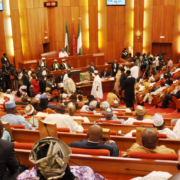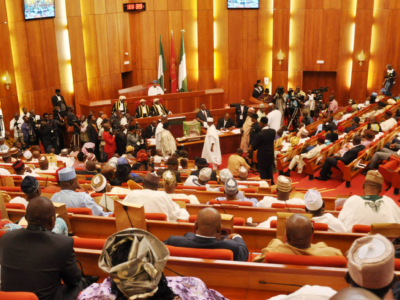The Dangote Petroleum Refinery has dismissed a widely circulated video suggesting it has partnered with a company to deliver petrol to motorists using dispatch riders.
The company told our correspondent on Sunday that it has no link to the promotional clip and is unaware of its source.
The video, which sparked reactions online, shows a man attempting to bypass fuel queues by ordering petrol via WhatsApp. A dispatch rider soon arrives with a small fuel dispensing unit attached to his motorcycle and fills the man’s vehicle. The advert, branded “FuelUp”, claimed the service was “powered by Dangote Petroleum”.
As the clip gained traction, some viewers praised the concept as innovative, while others raised concerns about safety and legality. However, Dangote officials firmly denied any involvement.
“Fake! We are not in any way associated with this,” the Group Chief Communication Officer, Anthony Chiejina, said. Another official stated that the refinery only supplies fuel to bulk buyers and has no agreement with any company to sell fuel through motorcycles.
The clarification comes as the refinery continues to expand its operations. Recently, Dangote imported hundreds of Compressed Natural Gas-powered trucks as part of its direct fuel distribution network, launched in September.
The company has also begun the process of scaling up refinery capacity from 650,000 barrels per day to 1.4 million barrels per day. Situated in the Lekki Free Trade Zone, the facility is among the world’s largest integrated refineries.
In recent months, Dangote has intensified its adoption of modern technologies to boost efficiency, reduce emissions, automate processing systems, and strengthen logistics infrastructure. These improvements are aimed at meeting rising local fuel demand while ensuring competitiveness across African and global markets.
The planned expansion, which will more than double output, positions the refinery to play a major role in Nigeria’s energy sector and underscores its long-term commitment to industrial growth and regional energy security.



















Comments